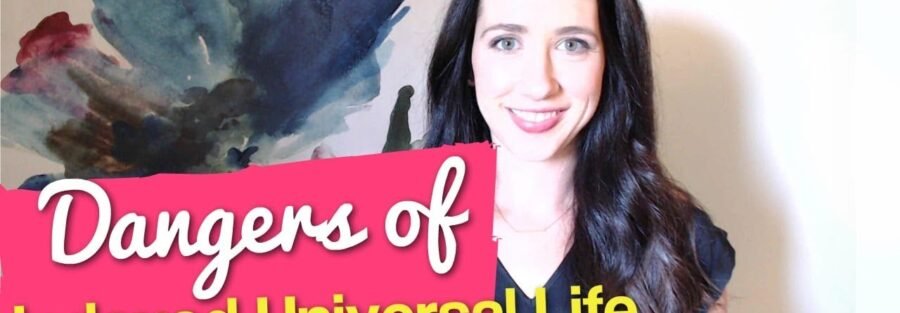Indexed Universal Life: Let’s talk about IUL risk.
[wpcode id=”4722″]
Indexed Universal Life insurance, also known as IUL, has gained popularity in recent years as a way to build cash value while also providing a death benefit for loved ones. But there are some dangerous truths about IUL’s that should be considered, especially when using them for Infinite Banking.
Infinite Banking, also known as Bank On Yourself, is a strategy that involves using a specially designed whole life insurance policy to create your own personal banking system. The idea is to borrow against the cash value of the policy to finance your own purchases and investments, while also benefiting from the tax advantages and growth potential of a permanent life insurance policy.
Many proponents of Infinite Banking recommend using an IUL as the cash value component of the policy, as it offers the potential for higher returns through a linked index like the S&P 500. However, there are several risks and drawbacks associated with IUL’s that make them less ideal for Infinite Banking.
One of the biggest dangers of IUL’s is the complexity of the product. Unlike traditional whole life insurance, which offers guaranteed cash value growth and a fixed premium, IUL’s are tied to the performance of a stock market index. This means that the cash value of the policy can fluctuate based on market conditions, making it difficult to predict how much money will be available for borrowing.
Another danger of IUL’s is the cap on returns. While these policies offer the potential for higher returns than traditional whole life insurance, they also come with a cap on the amount of growth that can be earned in a given year. This cap can limit the overall performance of the policy and reduce the effectiveness of using it for Infinite Banking.
Additionally, IUL’s come with high fees and expenses that can eat into the cash value of the policy. These fees can include mortality and expense charges, administrative fees, and fees for the indexed options. Over time, these fees can significantly reduce the cash value of the policy and impact its ability to support borrowing for Infinite Banking.
Another dangerous truth about IUL’s is the risk of policy lapse. Because the cash value of the policy is tied to market performance, there is a risk that the policy could lapse if the index performs poorly. This could leave the policyholder without the death benefit or cash value they were counting on, putting their financial security at risk.
In conclusion, while Indexed Universal Life insurance may offer potential benefits for building cash value and providing a death benefit, there are several dangerous truths that should be considered when using them for Infinite Banking. The complexity, caps on returns, high fees, and risk of policy lapse make IUL’s less than ideal for this strategy. It is important to carefully weigh the risks and drawbacks of IUL’s before using them as the cash value component of your Infinite Banking plan. Consulting with a financial advisor who is knowledgeable about both IUL’s and Infinite Banking can help you make an informed decision about the best way to achieve your financial goals.











